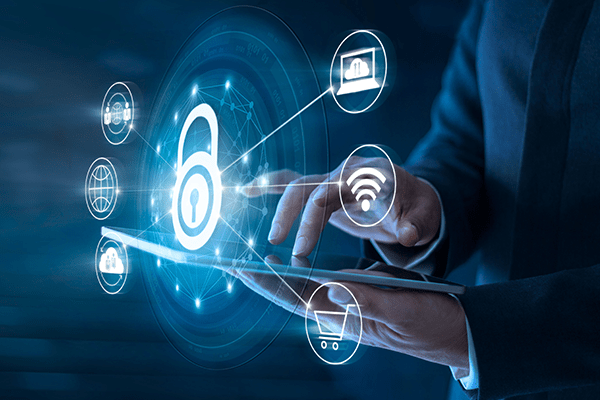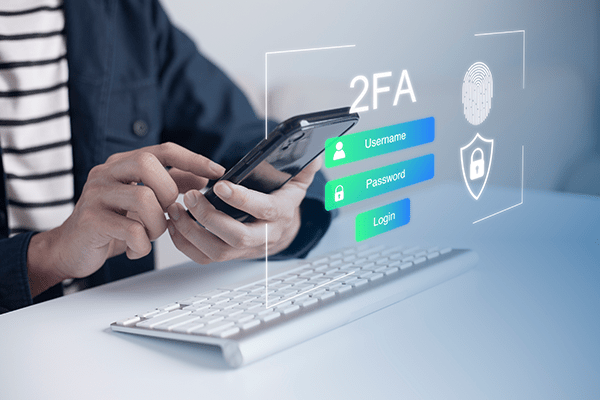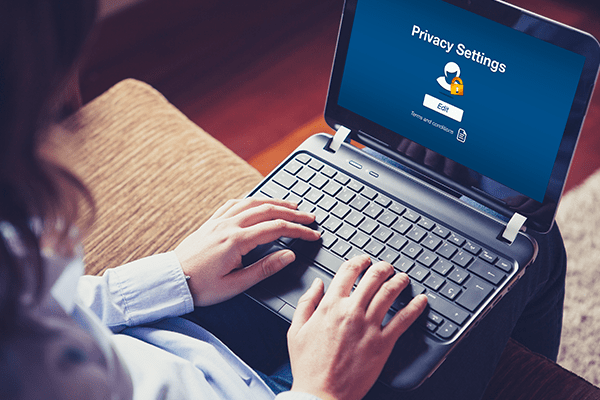Most Americans use social media every day, but have you considered that your social media activities could put you at risk for
cybersecurity vulnerabilities? Cyber-scammers and identity thieves are lurking on platforms like Facebook, Instagram, and Twitter, just like all other places on the internet.
Businesses fall victim to online scams and breaches all the time due to situations involving employees and their social media use. To keep your business safe, here are a few best practices to keep in mind when using social media in your personal and professional life:

Security tip #1: Check your email security & change passwords
Fortunately, there is a way to determine if your data is compromised.
Haveibeenpwned.com is a website that will show you if your
email address has been involved in any direct website data breaches. While this site does not cover every leak, it will give you some insight into the scope of how crucial cybersecurity is to our ever-connected society.
Even if you don’t show up on this site, it doesn't necessarily mean that your data is safe. It’s possible that someone used your email to sign up for something, and then that website or service experienced a breach. So, what do you do next? If you think you may have been impacted by a breach, you should immediately
change all your passwords and secure your accounts.
Security tip #2: Use unique passwords & a secure password manager service
It is critical to use a
unique password for each service and account you have, even on social media. You should also always store your passwords within a password vault, or
password manager. Using this method will allow you to have one "master" password to remember, which will give you access to all your other passwords safely and securely. At Bit-Wizards, we recommend the password vault,
LastPass.
LastPass has a free version for personal use and a paid version for professional use with governance options. It stores
usernames with their respective passwords and allows you to add any secure notes you may need. It also enables you to set a unique password for every account without having to reset your password every time you try to log in. This way, if one of your accounts is compromised, the hacker may have your email and the data associated with that account, but at least they don't have any of your other passwords.

Security tip #3: Use two-factor authentication
Another option to utilize on your social media accounts is two-factor authentication. This adds a secondary layer of security requiring proof (other than your password) that you are not an attacker attempting to gain access. For example, if your Twitter account has two-factor authentication configured, you may be required to verify your identity by inputting a code that was texted to you. This way, even if a hacker gets ahold of your Twitter password, they still won’t be able to get into your account without the code from your phone.

Security tip #4: Regularly check & update security settings
One of the best places to start getting some control of your social media profile is by checking and updating the
security settings for all your accounts. You will be surprised at how much control you have in the settings. Make sure your privacy settings are updated to your level of comfort and check the settings of all pictures or posts before sharing them. You can also check to see who can view your posts and narrow the audience. Be sure to do this regularly, as social media companies change settings options frequently when they make updates to their apps.
Security tip #5: Clean out your friends
Another recommended practice is to clean up friends and contacts on your social media profiles routinely. The more
connections you have, the more ways a fraudulent or compromised account could potentially connect with yours and send scams and malicious links. If you ever second guess something a friend or a family member has posted, it’s best to contact them directly in case their account information has been stolen.
Stay secure!
Social media still serves as a way to connect people, and these platforms are wonderful networking resources for professionals. But you still need to protect yourself and your company from potential
security pitfalls on these channels. Moving forward, the best thing you can do is learn more about best practices and how to implement them in your day-to-day life.
Here are some of our other resources concerning security online:
The Top 5 Cyber Threats Facing Businesses
Proactive and Reactive IT: An Approach to Ransomware
How to Recognize and Avoid Email Phishing Scams